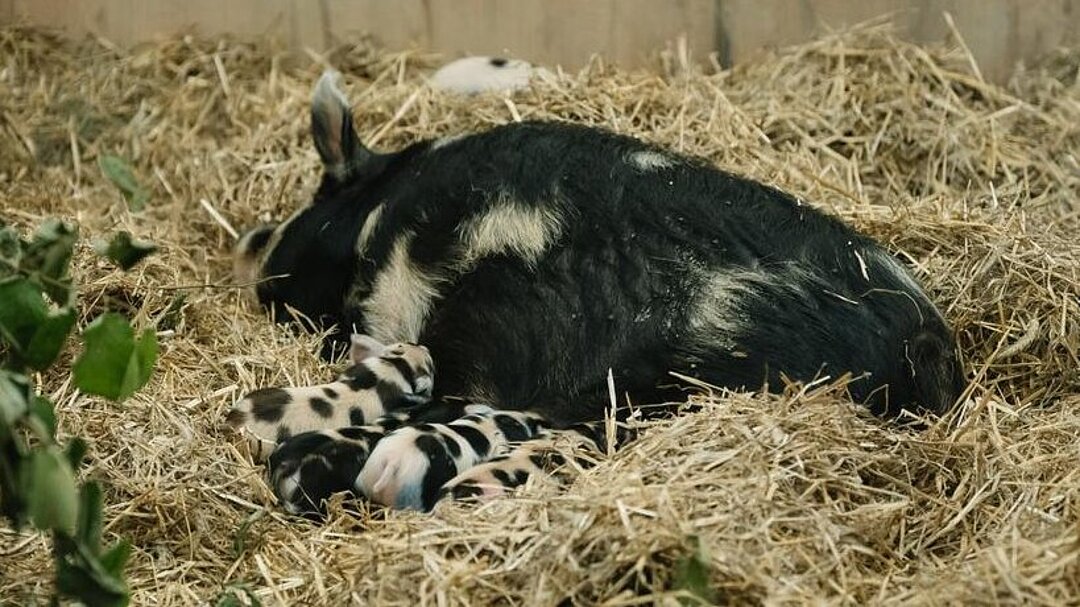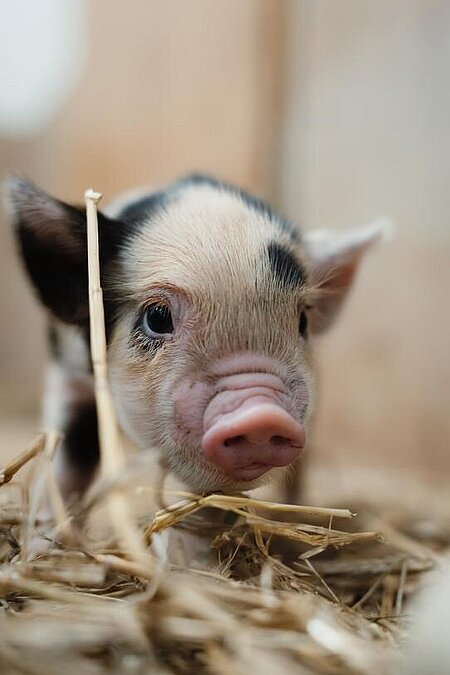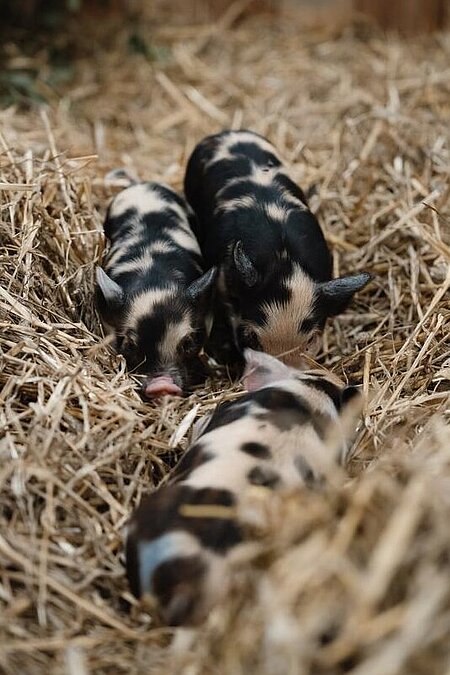
A spring visit by a Kunekune boar has proven to be a success: After a year's hiatus, piglets are back in Hellabrunn‘s Mühlendorf village! Mum Xippe gave birth to six young at the end of August, who are now happily exploring their barn and outdoor enclosure. Sow Frieda is also pregnant and could soon produce additional offspring.
The Kunekune is a rare breed of domestic pig originally from New Zealand, where it was primarily kept by the Maori people. By the 1970s, the population had dwindled to only about 18 individuals. A conservation breeding programme was subsequently launched to save the species. Since 2018, Hellabrunn Zoo has been actively involved in continuing these targeted conservation efforts. "Kunekune pigs are calm and very friendly grazing animals that are particularly popular with our visitors. We are delighted to welcome a new litter of piglets from this special breed for the fourth time," said Lena Bockreiß, biologist and curator of Mühlendorf.
She added: "If heritage breeds were to die out, their genes would be lost for future breeding. But we need this gene pool to ensure the continuation of special traits, because heritage breeds are usually more robust and less susceptible than modern high-performance breeds. This is particularly important for preventing disease outbreaks, but also for adapting to changes in climate. Heritage breeds are also well-suited to sustainable agriculture. For example, in the vineyards of the Champagne region in France, Kunekune are successfully used for natural weed control – small enough not to reach the vines, but diligently grazing thistles and loosening the soil.
Verena Dietl, mayor and chair of the zoo's supervisory board is equally pleased: "The breeding success of the Kunekune pigs underscores the important role Hellabrunn plays in preserving rare domestic breeds. The new arrivals in the Mühlendorf also offer a wonderful opportunity to educate visitors about the value of biodiversity and sustainable livestock farming."
The Mühlendorf village at Hellabrunn, known as the "Ark Park," is part of a nationwide network for the preservation of heritage and endangered domestic breeds. Here, the zoo not only keeps endangered breeds but also implements breeding programmes to ensure their survival. The Ark Park Hellabrunn thus contributes to preserving the genetic diversity of heritage livestock breeds for future generations.

